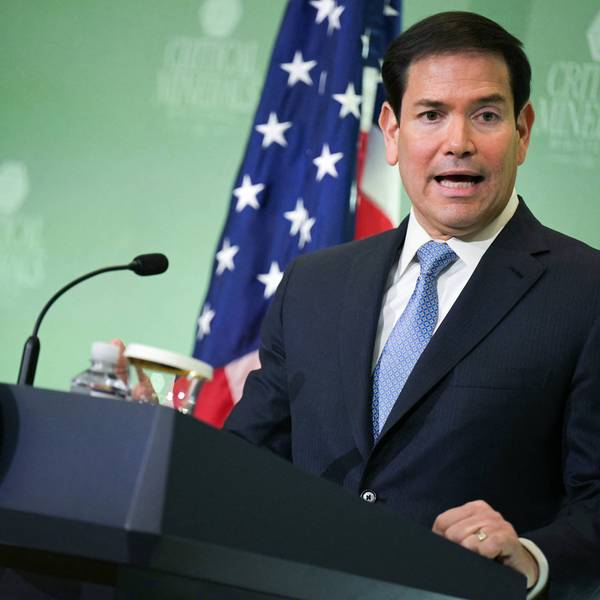Forty years ago, Chinese leader Deng Xiaoping and I normalized diplomatic relations between the People's Republic of China and the United States, putting an end to three decades of hostility. This led to an era distinguished by peace in East Asia and the Pacific region. China's spectacular economic growth, in conjunction with its continuing integration with the much larger U.S. economy, has enabled the two countries to become engines of global prosperity. Scientific and cultural exchanges have blossomed, and the United States has since become the top foreign destination for Chinese scholars and tourists. The 40th anniversary of this relationship is a testament to the ability of countries with different histories, cultures and political systems to work together for the greater good. Yet, today, this critical relationship is in jeopardy.
I hear Chinese elites claiming that Americans are conducting an "evil conspiracy" to destabilize China. I hear prominent Americans, disappointed that China has not become a democracy, claiming that China poses a threat to the American way of life. U.S. government reports declare that China is dedicated to challenging U.S. supremacy, and that it is planning to drive the United States out of Asia and reduce its influence in other countries around the world.
If top government officials embrace these dangerous notions, a modern Cold War between our two nations is not inconceivable. At this sensitive moment, misperceptions, miscalculations and failure to follow carefully defined rules of engagement in areas such as the Taiwan Strait and South China Sea could escalate into military conflict, creating a worldwide catastrophe.
The U.S. imposition of
tariffs on $200 billion worth of Chinese goods, and China's retaliatory tariffs, contribute to the deteriorating relationship, hurting both countries.
The 90-day pause in further escalation of tariffs, agreed to at the Group of 20 summit in Argentina, offers the possibility of reaching a permanent agreement on U.S.-China trade. What can we do to build on this progress, and to repair the U.S.-China relationship?
First, the United States' long-standing complaints -- about trade imbalances, intellectual property theft, forced technology transfers, and unfair barriers to U.S. investments and business operations in China -- must be addressed quickly and effectively. Neither country should use "national security" as an excuse to obstruct the other's legitimate commercial activities. China needs competition for its economy to innovate and grow; pursuing a fair and reciprocal relationship is the only way for both countries to remain economically strong.
Second, Americans must acknowledge that, just as China has no right to interfere in U.S. affairs, we have no inherent right to dictate to China how to govern its people or choose its leaders. Though even countries with the closest of relationships may critique each other at times, such engagements should never become directives or edicts; they should rather serve as a two-way street of open dialogue. China's achievements in sustaining economic growth, alleviating abject
poverty and providing developmental assistance to other countries need to be celebrated. At the same time, we cannot ignore its deficiencies in Internet censorship, policies toward minorities and religious restrictions -- which should be recorded and criticized.
This balanced approach is key to ensuring that the United States and China continue to work together toward solving some of the most intractable global problems. Despite current tensions on other issues, Chinese support has been essential in our ongoing efforts to denuclearize the Korean Peninsula. Beijing also could offer crucial help in post-conflict reconstruction in the Middle East and Africa, countering terrorism and extremism, and mediating other international disputes.
The United States should return to the Paris climate accord and work with China on environmental and climate-change issues, as the epic struggle against global warming requires active participation from both nations. But I believe the easiest route to bilateral cooperation lies in Africa. Both countries are already heavily involved there in fighting disease, building infrastructure and keeping peace -- sometimes cooperatively. Yet each nation has accused the other of economic exploitation or political manipulation. Africans -- like billions of other people around the world -- do not want to be forced to choose a side. Instead, they welcome the synergy that comes from pooling resources, sharing expertise and designing complementary aid programs. By working together with Africans, the United States and China would also be helping themselves overcome distrust and rebuild this vital relationship.
In 1979, Deng Xiaoping and I knew we were advancing the cause of peace. While today's leaders face a different world, the cause of peace remains just as important. Leaders must bring new vision, courage and ingenuity to new challenges and opportunities, but I believe they also must accept our conviction that the United States and China need to build their futures together, for themselves and for humanity at large.




